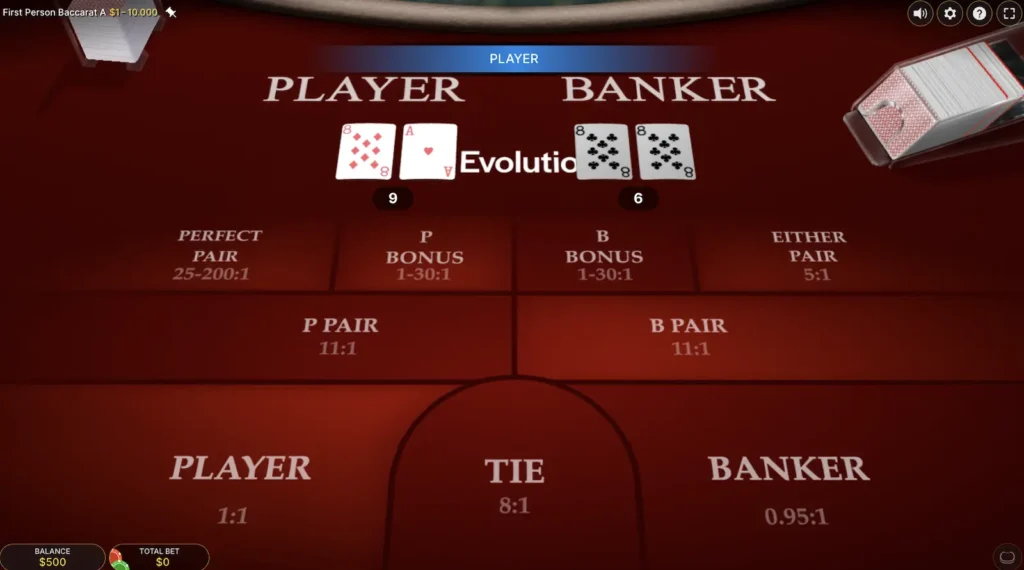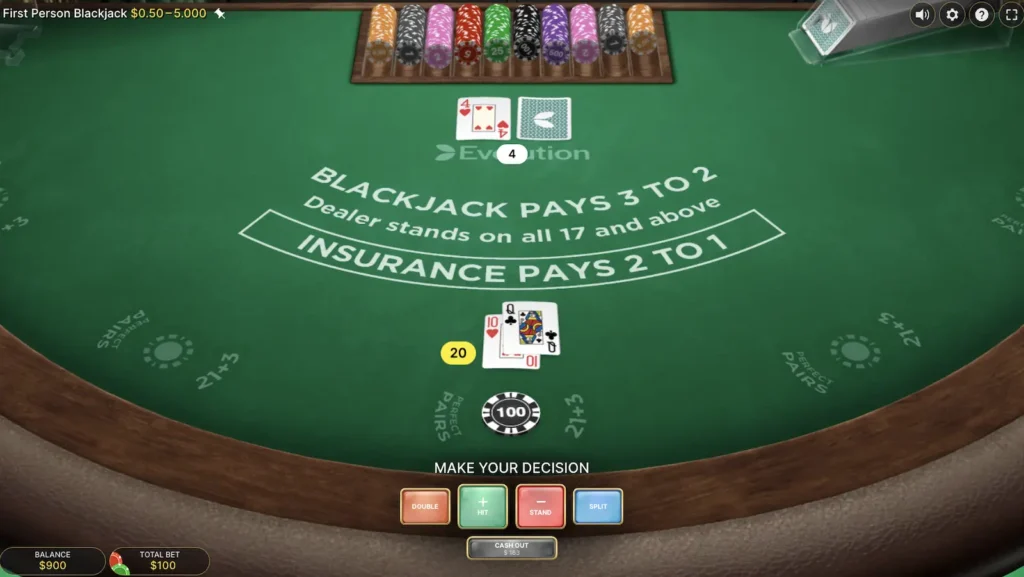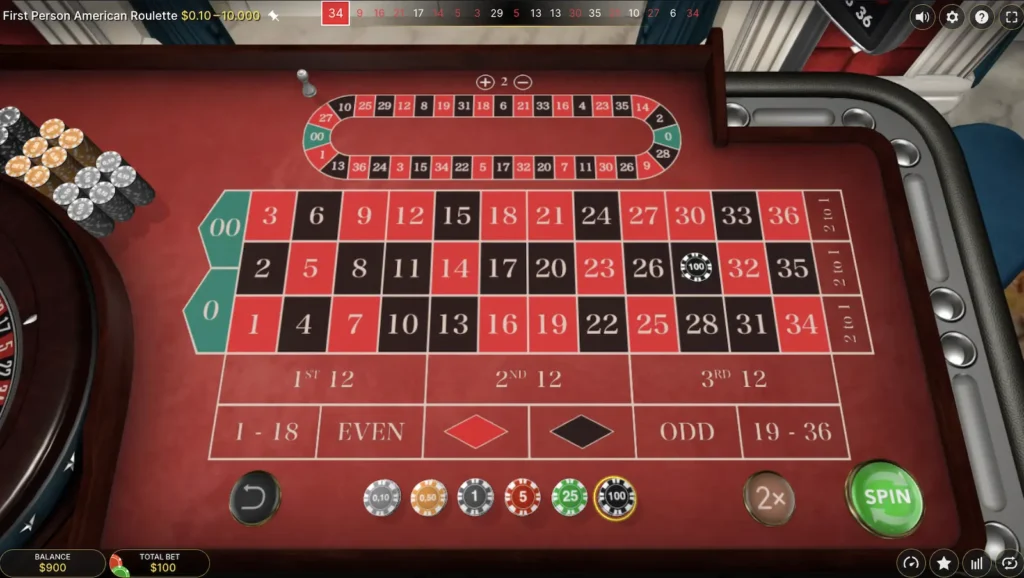Baccarat has always been that card game in casinos for rich high rollers and big spending “whales”. Us regular players only got to play if we dressed up nice and went to the VIP sections in Las Vegas. But today we can play real baccarat from our laptops or phones from home, thanks to the many American real money online casinos offering this game.
In this guide, I’ll walk through how online baccarat works for beginners. We’ll cover the gameplay basics, some winning tips, and the best places to play and maybe win some hard cash. Let’s dive in.
Recommended Online Casinos for Online Baccarat
I’ve selected the best casinos to play baccarat online. These choices are based on game variety, trustworthiness, bonuses, and the overall experience.
| Where to Play | Welcome Bonus | Rating |
|---|---|---|
| Super Slots | 300 Free Spins | 5/5 |
| Wild Casino | 250 Free Spins + Cash Rewards & Prizes | 5/5 |
| Stake.us | 250,000 GC + 25 SC + 5% rakeback | 5/5 |
| Las Atlantis | $9,500 Welcome Bonus | 4.8/5 |
| El Royale | Up to $7500 Slots & Cards Welcome Bonus | 4.7/5 |
How To Play Baccarat
Pick a Bet
You can bet on Player, Banker, or Tie. Most players bet on Player or Banker because they offer the best chances of winning (1:1 payout). The Tie bet has a much higher payout but a much lower chance of winning (8:1 or 9:1).
Cards Are Dealt
Player and Banker each receive 2 cards, which are dealt automatically by the dealer.
Add Up Points
The values of the cards are added up as follows:
- Cards 2-9: Worth their face value.
- Ace: Worth 1 point.
- 10, Jack, Queen, King: Worth 0 points.
Only the last digit of the total counts. For example, 7 + 8 = 15, but the hand is worth 5 (only the last digit is used).
Third Card Rule
A third card may be drawn based on strict rules:
For the Player:
- If the Player’s total is 0-5, the Player automatically draws a third card.
- If the Player’s total is 6-7, the Player stands (no third card).
- If the Player has a total of 8 or 9 (called a “natural”), both the Player and the Banker stand.
For the Banker:
- If the Banker’s total is 0-2, the Banker always draws a third card.
- If the Banker’s total is 3, they draw unless the Player’s third card is 8.
- If the Banker’s total is 4, they draw if the Player’s third card is 2-7.
- If the Banker’s total is 5, they draw if the Player’s third card is 4-7.
- If the Banker’s total is 6, they draw if the Player’s third card is 6 or 7.
- If the Banker’s total is 7 or higher, they stand.
Winner
The hand closest to 9 wins. If you bet on the winning hand (Player or Banker), you win an even payout (1:1). If you bet on Banker and win, there is a 5% commission deducted from your winnings. If you bet on a Tie and win, the payout is typically 8:1 or 9:1, depending on the casino.
Example Turn
You bet on Player. The Player receives 5 + 3 = 8. The Banker receives 6 + 2 = 8. It’s a tie (both hands have 8), so if you bet on Tie, you win with an 8:1 payout.
How Much Does Each Bet Pay?
Player Bet
If the Player wins, you get paid 1:1 (meaning you win what you bet).
Example: If you bet $10, you win $10.
Winning chance: ~44.62%
Banker Bet
If the Banker wins, you get paid 1:1, but with a 5% commission deducted by the casino. So effectively 0.95:1.
Example: If you bet $10, you win $9.50 (after the 5% commission is deducted).
Winning chance: ~45.86%
Tie Bet
If there’s a tie and you bet on it, the payout is usually 8:1 or 9:1, depending on the casino.
Example: If you bet $10 on Tie and win with 8:1 odds, you get $80.
Winning chance: ~9.52%
Why Does Banker Have a 5% Fee?
The Banker has a better chance of winning due to the way the rules are structured for drawing a third card. These rules give the Banker more flexibility based on the Player’s hand, which results in the Banker having a slight edge.
Here’s why:
- Player’s Hand: The Player has to follow strict rules when drawing cards. If the Player’s total is 6 or 7, they stand; if it’s 5 or less, they automatically draw a third card.
- Banker’s Hand: The Banker’s actions depend not just on their own total but also on the Player’s hand. This gives the Banker more strategic options for when they draw a third card, making their chances of winning slightly better.
For example:
- If the Player stands, the Banker has more flexibility to decide if they want to draw based on their own hand.
- If the Player draws a third card, the Banker’s rules take into account both their total and the Player’s new total, which improves the Banker’s chances of making the right move.
Baccarat Odds (Chances of Winning):
- Player: About 44.6% chance of winning.
- Banker: About 45.8% chance of winning (slightly better odds, but the commission applies).
- Tie: About 9.6% chance of happening (rare, which is why the payout is much higher).
Most players stick with betting on Player or Banker because the Tie is a long shot, but when it hits, the payout is much bigger!
Comparing Baccarat to Other Top Casino Games
How does baccarat stand up against other player favorites like blackjack and roulette? Here’s a quick comparison:
House Edge
Baccarat

Baccarat has a very low house edge of 1.06% for the Banker bet and 1.24% for the Player bet, making it one of the most favorable casino games for players. The average house edge is around 1.2-1.3% when betting on Banker or Player. The Tie bet has a much higher house edge of 14.36%, so it’s generally not recommended.
Blackjack

In blackjack, the house edge can vary between 2% and 4% for players not using a perfect strategy. However, using perfect basic strategy can reduce the house edge to around 0.5%, giving you an effective win rate of 49.5% over the long term.
Roulette

Roulette has a house edge of 2.7% for European roulette (with one zero), meaning the casino has a slight edge, but players have a 97.3% win rate in the long run. American roulette (with two zeroes) has a higher house edge of 5.26%, meaning players’ win rate is about 94.74% over time.
Baccarat vs Other Casino Games
Here’s a comparison table comparing the chances of winning in Baccarat compared to other casino games.
| Game | Player Bet Win Probability | House Edge | Notes |
|---|---|---|---|
| Baccarat (Banker) | ~45.86% | 1.06% | Best bet in baccarat, but 5% commission on Banker wins. |
| Baccarat (Player) | ~44.62% | 1.24% | Slightly lower win probability than Banker. |
| Baccarat (Tie) | ~9.52% | 14.36% | High house edge despite 8:1 or 9:1 payout. |
| Blackjack (Basic Strategy) | ~49.5% | ~0.5% | Best odds when using perfect basic strategy. |
| Blackjack (No Strategy) | ~46-48% | 2-4% | Win probability drops without strategy. |
| European Roulette | ~97.3% (for any bet)** | 2.7% | Lower house edge than American roulette. |
| American Roulette | ~94.74% (for any bet)** | 5.26% | Higher house edge due to the double zero. |
| Craps (Pass Line Bet) | ~49.3% | 1.41% | One of the lowest house edges among dice games. |
| Slot Machines | Varies (generally ~40-45%) | 5-10% or higher | Win probability depends on the machine. |
| Video Poker (Jacks or Better, Optimal Play) | ~99.54% | ~0.46% | Excellent odds with optimal strategy. |
As you can see, baccarat offers very favorable odds for players with the lowest house edge. Your probability of winning any given baccarat hand is just under 45% based on the odds.
Here’s a simplified and updated version of the section:
Where is Baccarat Most Popular?
Baccarat is popular around the world, but it thrives in a few key countries due to historical, cultural, and legal factors. Notably, it has strong followings in the United States, France, and parts of Asia, including Indonesia.
Where is Baccarat Most Popular?
Baccarat is a global favorite, but its popularity shines brightest in a few key regions, driven by history, culture, and access to gambling. Some of the biggest baccarat hotspots include the United States, France, and Asia, particularly Macau and Indonesia.
United States
Baccarat took off in Las Vegas casinos in the mid-20th century, and was mainly aimed at attracting wealthy high rollers. Its straightforward rules and low house edge made it an instant hit. Over time, it spread from exclusive tables to the general casino floor. Today, with the rise of online casinos, baccarat has become a staple game for many American players, especially online, where it’s easily accessible.
France
As the birthplace of baccarat, France has a long history with the game. Versions like Chemin de Fer were popular with French nobility as early as the 19th century. Even now, baccarat remains a beloved part of French gambling culture, both in casinos and casual settings. It holds a special place in the country’s card-playing tradition.
Asia (Especially Macau and Indonesia)
Macau is often considered the baccarat capital of the world, with the game dominating casino floors. Asian players love baccarat for its simplicity and fast pace. In Indonesia, despite strict anti-gambling laws, baccarat thrives online. Many Indonesians use VPNs to access online casinos, drawn to the game’s straightforward play and the general enthusiasm for baccarat across Asia.